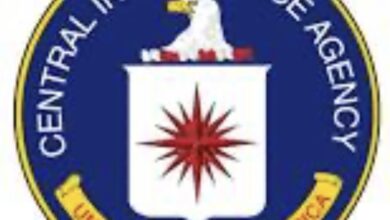Op-ed: The Heartbreaking Reality of Rafah: Israel’s Tragic Mistake or Deliberate Disregard?

New York -Free Yemen Eye – From
American Television News
Palestinian children survey the destruction while scavenging for food at the site of an Israeli strike on a displaced persons camp in Rafah, Gaza Strip, May 27.| Reuters
By: Ahmed Fathi
New York: The world watched in horror as news broke of a devastating attack on a Palestinian refugee camp in Rafah, resulting in the death of 45 civilians, including children. The images and videos emerging from the scene are not only grotesque but also deeply heart-wrenching, depicting a level of human suffering that should shake the global conscience. This incident, referred to by Israeli Prime Minister Benjamin Netanyahu as a “tragic mistake,” has triggered widespread outrage and condemnation from international leaders and organizations, including the United Nations.
Call for Accountability
The UN International Court of Justice (ICJ) had recently issued a ruling ordering Israel to cease its military operations in Rafah. Yet, despite this clear directive, the attack on the refugee camp occurred, raising serious questions about Israel’s adherence to international law and its commitment to protecting civilian lives in conflict zones. The immediate response from the UN was unequivocal; Secretary-General Antonio Guterres and General Assembly President Dennis Francis both strongly condemned the attack. However, history has shown that such condemnations often fall on deaf ears, leading to a recurring cycle of violence and impunity.
The UN’s Struggle for Relevance
Algeria’s call for an emergency closed meeting of the Security Council underscores the gravity of the situation. However, expectations for concrete action remain low, particularly in light of recent events where Israel’s Ambassador to the UN, Gilad Erdan, dramatically shredded the UN Charter in front of member states. This act of defiance was a symbolic gesture that underscored Israel’s growing estrangement from the international community and its institutions.
The UN’s ability to enforce its resolutions has always been limited, often hampered by political alliances and the veto power wielded by permanent members of the Security Council. In the case of Israel, strong backing from the United States has historically shielded it from substantive punitive measures. Consequently, the likelihood of achieving meaningful progress through the UN seems remote, fostering a sense of frustration and helplessness among those advocating for Palestinian rights and justice.
The Human Cost of Political Failure
At the heart of this tragedy are the innocent civilians who bear the brunt of political and military miscalculations. The attack on the Rafah refugee camp is not an isolated incident but part of a broader pattern of violence and displacement that has plagued the region for decades. Each life lost represents a family torn apart, dreams shattered, and a future irrevocably altered. The grotesque images circulating in the media serve as a stark reminder of the human cost of this protracted conflict.
Regional Implications
The spillover effect of the Rafah incident is already being felt. An Egyptian Army soldier was killed in an exchange of fire with Israeli forces, an event that has further inflamed public sentiment against Israel in Egypt and beyond. This incident threatens to destabilize an already volatile region, potentially drawing neighboring countries into the fray and exacerbating an already dire humanitarian situation.
Moving Forward
In the wake of this tragedy, the international community must grapple with a critical question: how can it hold Israel accountable while simultaneously working towards a sustainable and just resolution to the Israeli-Palestinian conflict? Mere condemnation is insufficient; there must be concrete steps taken to ensure that such atrocities are not repeated. This includes rigorous enforcement of international laws and conventions, genuine efforts towards peace negotiations, and unwavering support for humanitarian aid to affected populations.
The attack on Rafah should serve as a wake-up call to the world. It is a stark reminder of the urgent need for a concerted and sustained effort to address the root causes of the conflict and to protect the most vulnerable. The international community must not turn a blind eye to the suffering of the Palestinian people. It is time for action, accountability, and, above all, a renewed commitment to peace.
In conclusion, the Rafah tragedy is a sobering illustration of the dire consequences of inaction and the urgent need for a robust international response. The world must demand better, not just for the people of Rafah, but for all those caught in the crossfire of this enduring conflict. Only then can we hope to build a future where such heartbreaking scenes are relegated to history.





